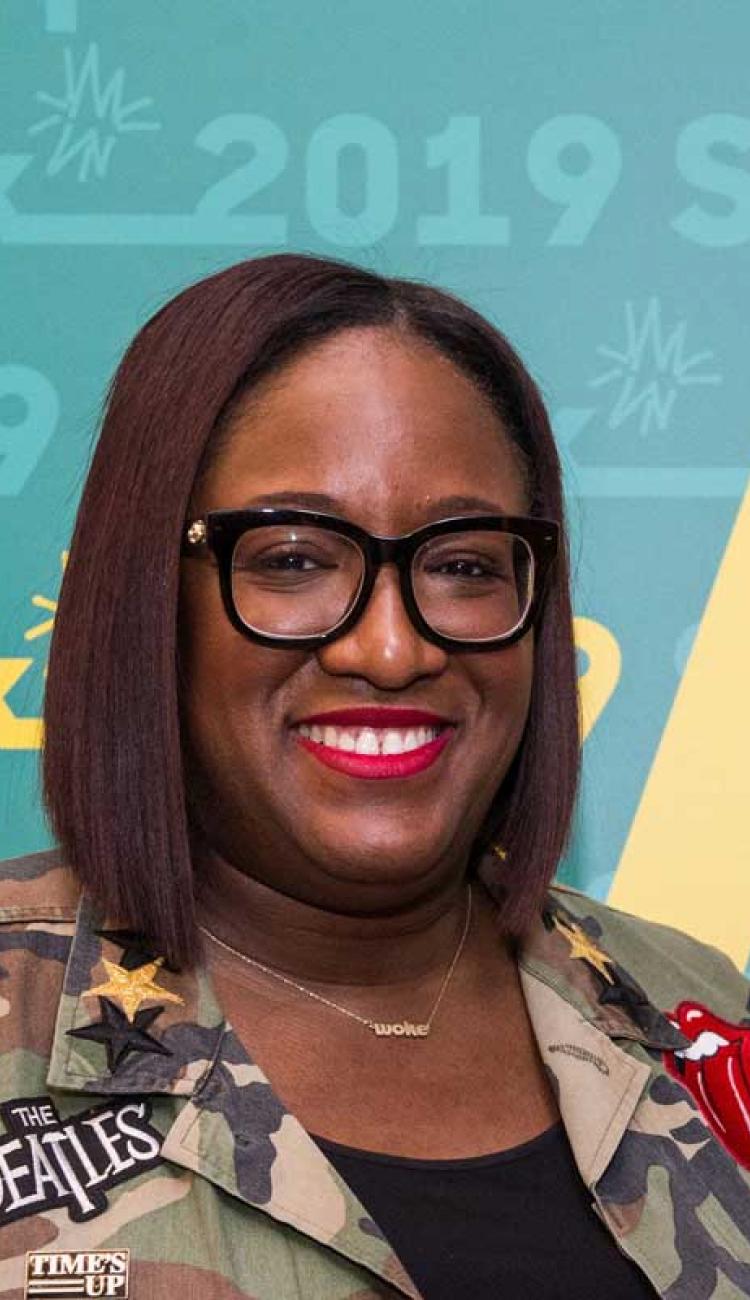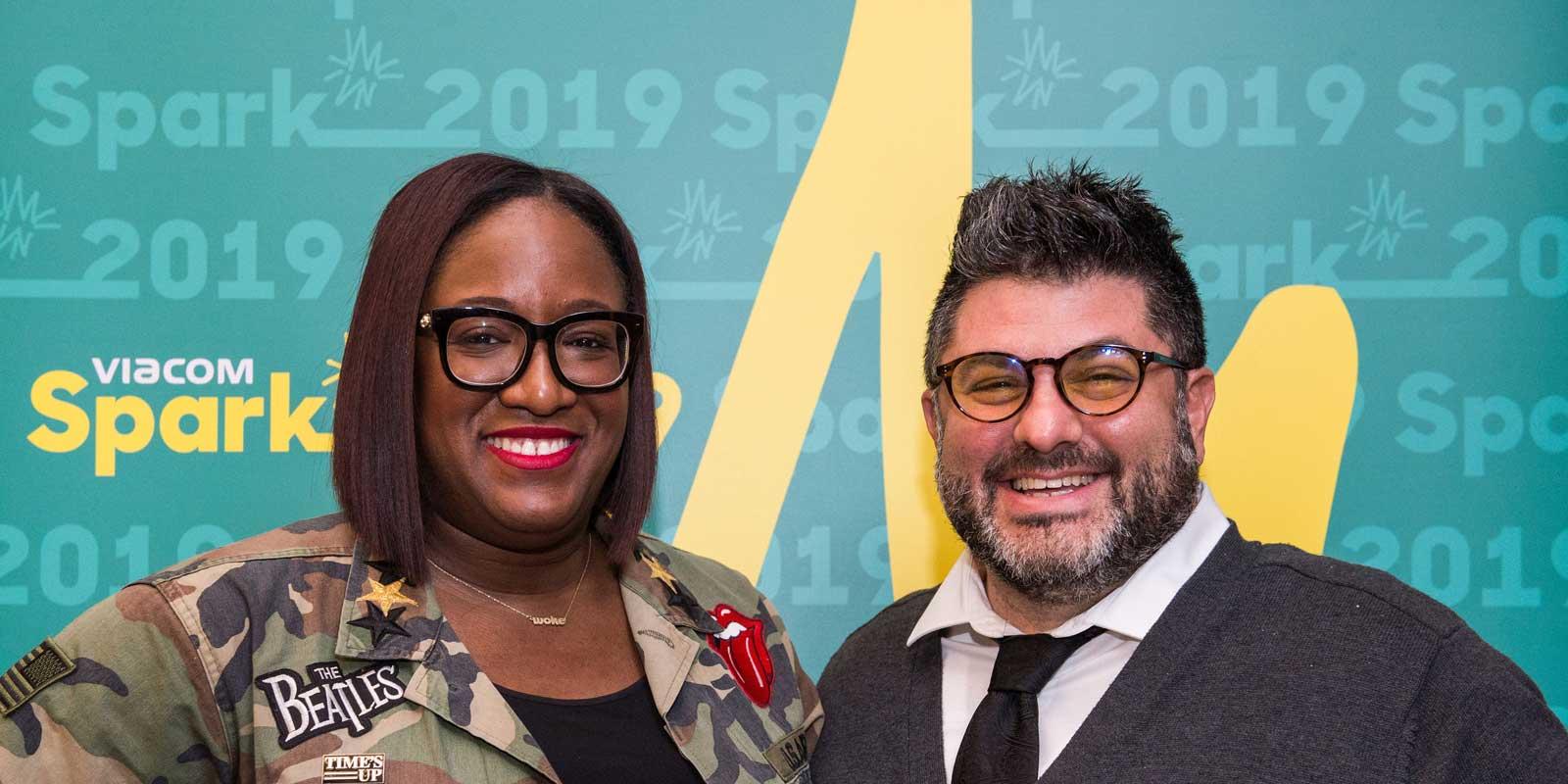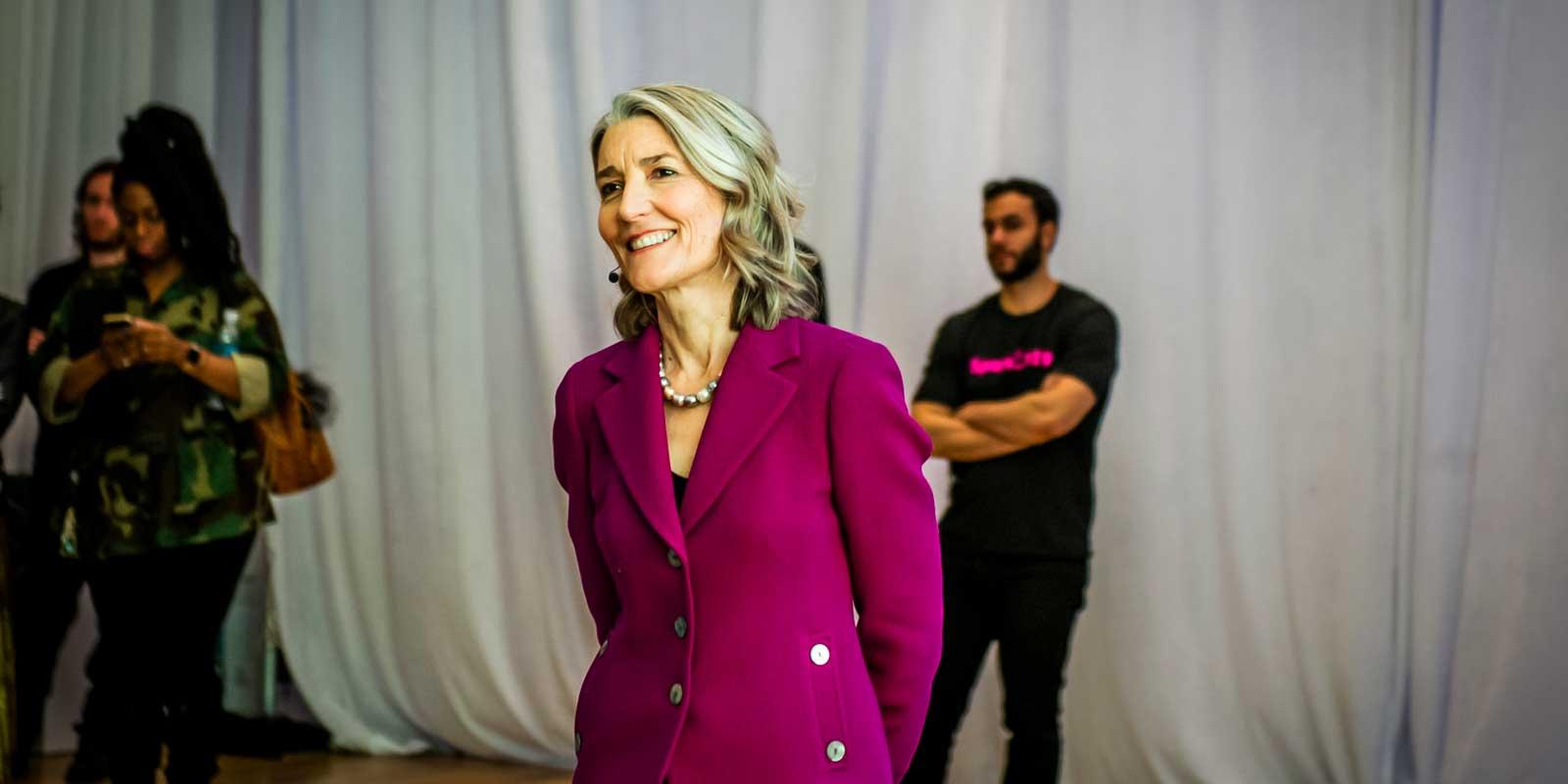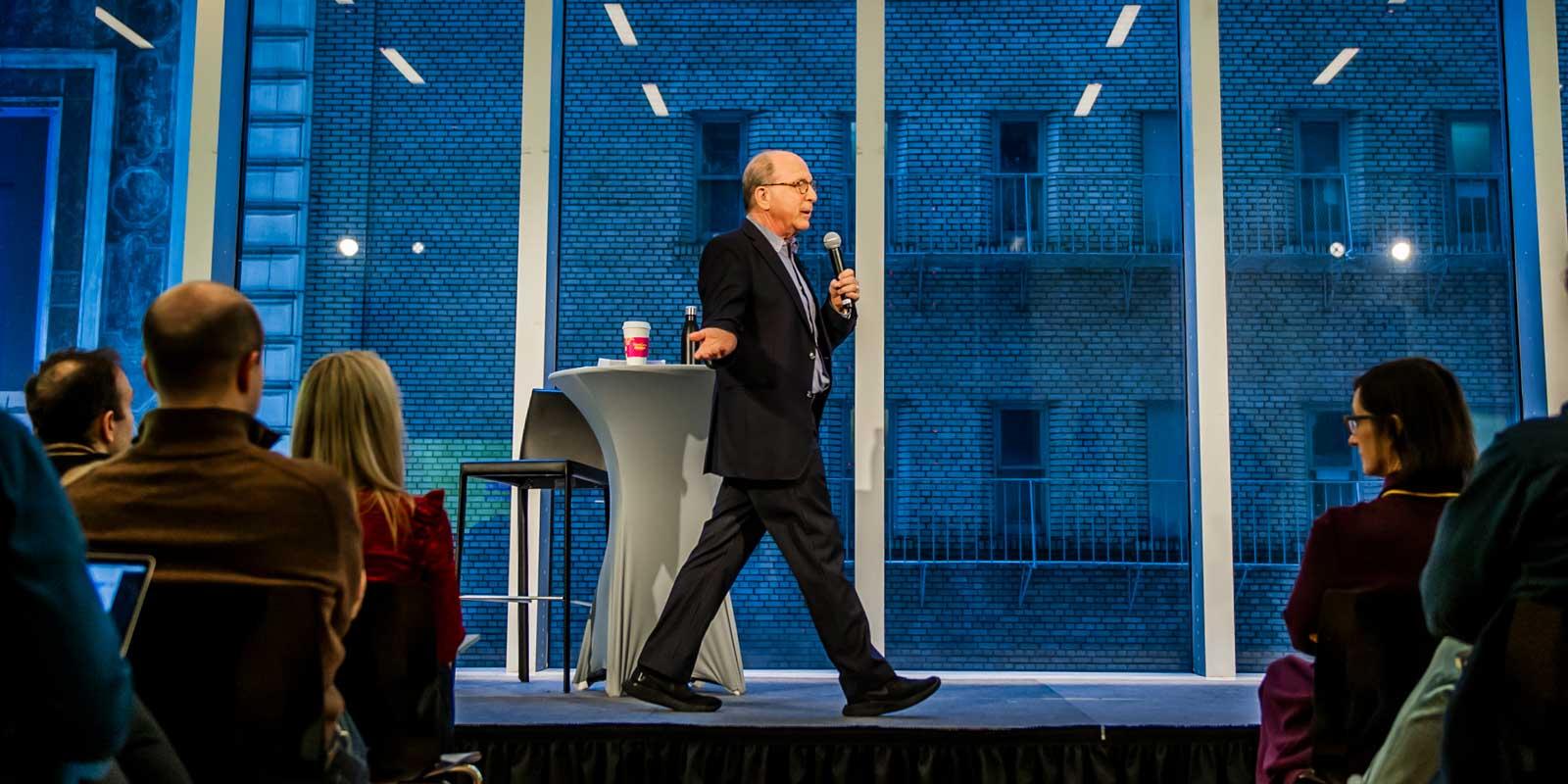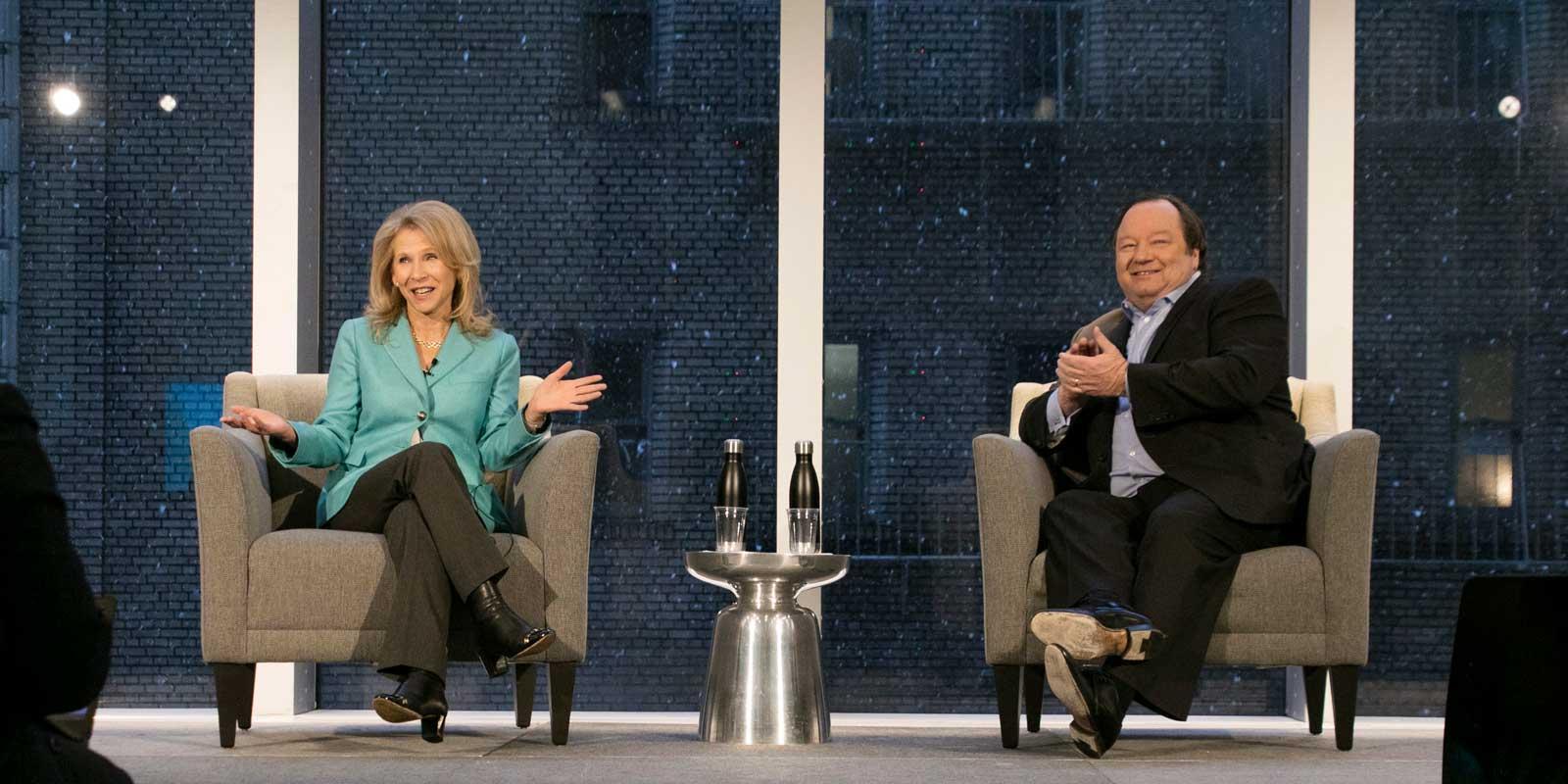Feb 21, 2019
An overview of the challenges and rewards of workplace diversity and inclusion programs from Tiffany Warren.
Back in 2005, Tiffany Warren, then the manager of diversity programs for the American Association of Advertising Agencies, noticed a disturbing pattern at industry award shows.
“I had the opportunity to go to a lot of industry events, and so I would go to these events and there were a lot of great winners, but I didn't really see people of color winning,” Warren told an audience of Viacom employees last week. “Or I would see the same people winning, which they well deserved, but I knew that there was more to it than the list that I kept seeing.”
So when she left for a director of diversity position at Arnold Worldwide, she asked the agency to help her launch ADCOLOR, which celebrates and advocates diversity in the creative and technology industries.
“The good thing about Arnold is it was started and it was called ‘Arnold’ because the founder of Arnold, Arnold Rosoff, couldn't put his last name on the door because he was Jewish,” said Warren. “So I couldn't have thought of a better place for ADCOLOR to launch, in an agency where you really got to come as your full self.”
Together, they organized the first awards show in the fall of 2007. “Fast forward to 2019, we are now a movement and an organization,” Warren said, with a 1,200-person conference, the award show, and a professional development program that recruits young people nationwide.
In a conversation last week with WHOSAY Chief Marketing Officer Paul Kontonis, Warren, who is now chief diversity officer at Omnicom, spoke at length about the importance of diversity and inclusion to modern companies, detailing how a company’s culture must evolve before implementing change. The globally live-streamed event was part of Viacom’s Spark summit designed to equip, engage and inspire the company’s 10,000 employees to thrive in our rapidly changing workplace.
Here are a few highlights of Warren’s conversation with Kontonis:
On privilege:
“Privilege has different levels. I have an appearance privilege, I have cis privilege, you know. I learned a lot by being on the board at GLAAD that I have ally privilege, I have heterosexual privilege. So privilege is not just the exclusive right of whiteness, but privilege likes to be comfortable. … What I try to do in my role is to remind people of how important it is and make them understand their privilege and give space for people who don't have it.
So in a meeting, if you're used to talking and you're used to being the one that's coming up with the ideas, take a step back, be the one that talks less. … Trust me, you'll still have the same amount of privilege. You're not giving up anything. But what you're giving into is creating space for other people to rise as well, and that's how you use your privilege in a way that's respectful, that doesn't require you to feel shameful about it, and allows you to spend it.”
On the importance of diversity in the workplace:
“People always ask me, you know, ‘Tiffany, make the business case for diversity.’ And so what I respond back to them is, ‘Make the business case for sameness.’ … Because why is the onus on me? I mean, yes, I have diversity in my title. But why is the onus on me to be the teacher of everyone? If you're going to continue to be successful in this day and time, diversity is your only way forward.
"If you're going to continue to be successful in this day and time, diversity is your only way forward."
People are tired of the word. It makes them sleepy because people use it so often and they use it badly. But the effects of diversity, particularly in business, has proven to be a revenue generator. You can do another Harvard study, McKinsey can come up with another study, but it's proven. Unfortunately, diversity is a driver but those individuals who made the car are not getting far. Look at your levels, your succession planning, and make sure you're moving people up who are driving the diversity within your organization.”
On learning to share power:
“Why do you need permission to be a sponsor? Why do you need permission to be an ally? I think, again, because there's a protection of the status quo, people have a scarcity mindset. People think there's a finite amount of power to go around. So there's power hoarding, like ‘I need to protect this power because there's not enough to go around.’ Power is amplified and it's exponential. There's enough to go around; there's enough to share.”
On diversity programs such as Head Start and Inroads, which Warren participated in as a child:
“You know, these programs exist to disrupt the status quo, and they've done a really, really good job of it, but it takes more than just these programs to disrupt the status quo. It takes allies. It takes well-meaning individuals who understand the importance of sponsorship. It takes people who understand their privilege, whether it's cis, appearance and all the things I mentioned before, even religious privilege. You know, Catholic, or Christian versus Muslim. There are so many different things that are occurring in the workplace, and coming to work is the only chance you have to really get it right because when you leave, people go into their segregated worlds.”
On the necessary steps to introduce diversity programs into the workplace:
“I think one of the first steps is to have courageous conversations. I think a large part of why we can't move forward creatively or culturally is because people are not addressing the elephants in the room. They're not addressing bro culture. They're not addressing mean-girl culture. These things may feel right to some people, but make others kind of cringe and move away.”
On how to tell if you are protecting your power:
"If you're in a room and everyone looks like you, I think you know that you're protecting the status quo."
“That's really hard to pinpoint, but I think generally if you're in a room and everyone looks like you, I think you know that you're protecting the status quo. Or you're in a room in which you're only taking suggestions from people that look like you, or act like you, I think you know you're protecting the status quo.”
On the importance of staying connected to her roots:
Home is very important to me, and re-centering myself with family is equally important. I grew up with a group of friends who were first-generation college-goers, immigrants. Haitian, Dominican, Cape Verdean. And all of us had the privilege of getting into private and Catholic schools at a time when these diversity programs were opening the doors to these institutions. So in that particular group, we have senators, the head of economic development for Boston, mergers and acquisitions lawyers. But just one generation ago we didn't have many. So it's important for us collectively, as a group, to give back to whatever common causes are happening in our home town.”
